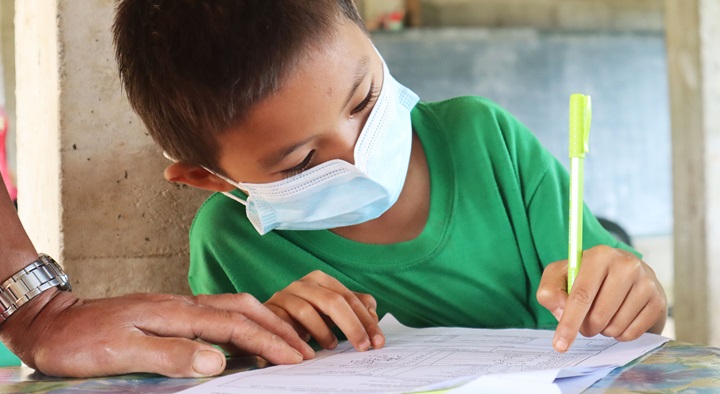
Over 26 million enrolled students in the Philippines are confronted with the multifaceted impacts of climate change, including the possibility of El Nino bringing intolerable heat, more powerful typhoons, and limited access to water for basic needs. This happens to about half of the 75 million children around the world whose education is interrupted every year by natural disasters like floods and drought.
“In the past four years, we have experienced changes in the school calendar and mode of delivery due to the pandemic and to adapt to the changing climate, on top of all the class suspensions due to frequent typhoons. We are yet facing another calendar shift due to El Nino,” 17-year-old climate campaigner Rohj Olivo said.
Recently, Olivo was in Thailand as a youth representative for the 11th Asia-Pacific Forum on Sustainable Development (APFSD). He is a youth advocate for Save the Children Philippines’ Generation Hope campaign against climate change and inequality. During the APFSD, Olivo spoke with Armida Salsiah Alisjahbana, Executive Secretary of UN ESCAP, and Surya Deva, UN Special Rapporteur on the Right to Development, about children’s rights to a healthy environment.
“Our argument is clear: in the midst of climate change, government action should ensure that we have uninterrupted access to quality education, and to effectively solve this problem, leaders must not only listen to children and youth’s voices but also heed our wisdom, for it is our future that hangs in the balance,” Olivo shared.
During APFSD’s event on Building a Greener Future: Education as a Climate Solution in Bangkok, Thailand, Philippine Congresswoman Ma. Cynthia King Chan proudly shared information about R.A. 10821, also known as the Children’s Emergency Relief and Protection Act, that ensures the continuity of services, particularly education, for children who are displaced before, during, and after disasters.
Save the Children Philippines has been at the forefront of advocating for R.A. 10821, including its localization so that all Filipino children are protected from emergencies at all times.
Congresswoman Cindi commended ongoing efforts such as integrating climate change modules and the Green School Program, a school-based adaptation program, as well as supporting research and enhancing teacher training. The program will help 47,000 public schools strengthen their climate mitigation adaption strategies and enhance resilience, thus reducing learning interruptions.
“By imparting knowledge, and skills, and fostering critical thinking in our children, we empower them to become climate champions,” Congresswoman Chan said.
Save the Children Philippines also implements Comprehensive School Safety (CSS) Ecosystems and Quality Assurance System (QAS) programs in over 21,000 schools and 12,000 barangays to ensure that children, schools, and communities are climate-literate, responsible, and resilient to the inevitable impacts of climate change.

